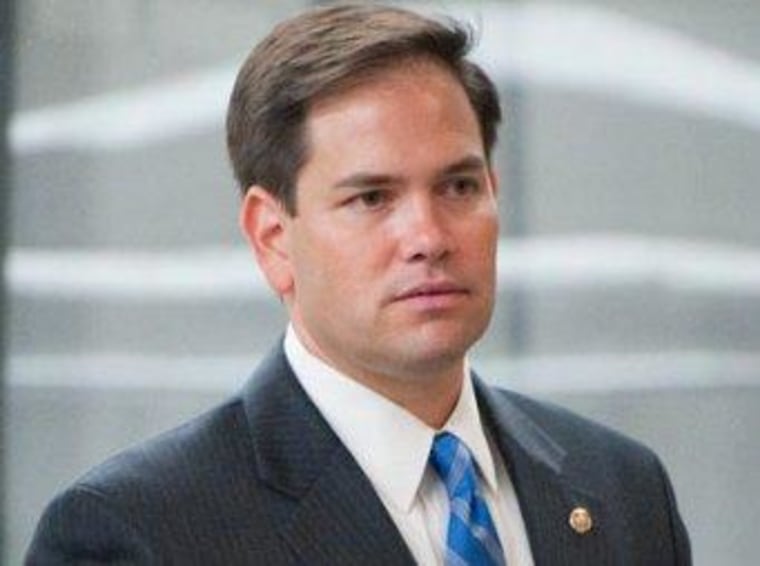In August 2011, as his presidential campaign was just getting underway, Texas Gov. Rick Perry (R) fielded an interesting question from a young boy in New Hampshire: "How old do you think the Earth is?" Given Perry's general aversion to science, it was hardly an unreasonable thing to ask.
"I don't have any idea," the governor replied. "I know it's pretty old. So, it goes back a long, long way." It was unclear whether Perry considers 6,000 years "pretty old."
Fifteen months later, another high-profile, far-right politician was asked the identical question, and once again the answer was pretty interesting. In this case, it was GQ's Michael Hainey who asked Sen. Marco Rubio (R), "How old do you think the Earth is?" Here's how the senator responded:
"I'm not a scientist, man. I can tell you what recorded history says, I can tell you what the Bible says, but I think that's a dispute amongst theologians and I think it has nothing to do with the gross domestic product or economic growth of the United States. I think the age of the universe has zero to do with how our economy is going to grow. I'm not a scientist. I don't think I'm qualified to answer a question like that."At the end of the day, I think there are multiple theories out there on how the universe was created and I think this is a country where people should have the opportunity to teach them all. I think parents should be able to teach their kids what their faith says, what science says. Whether the Earth was created in 7 days, or 7 actual eras, I'm not sure we'll ever be able to answer that. It's one of the great mysteries."
I think I like Perry's answer better.
To be sure, I don't seriously expect Rubio to immediately cite the commonly accepted scientific figure -- the planet is 4.54 billion years old -- from memory. Sure, Rubio is a member of the Senate Science Committee, and is on the subcommittee that deals specifically with science and space, but let's give him the benefit of the doubt and assume the age of the Earth is one of those details that doesn't come up often.
But it was the rest of Rubio's answer that gives me pause.
The point of the question, of course, is to understand whether Rubio is a creationist who rejects the entirety of the scientific canon and believes the planet is only 6,000 years old. As the senator's national ambitions take shape, he'll probably need to answer the question directly at some point.
But note the way in which Rubio thinks the issue through -- he's "not a scientist"; theologians disagree; so he's not "qualified" to answer. The senator is comfortable, though, concluding that the age of the planet is "one of the great mysteries."
Except, of course, it's not. A "dispute amongst theologians" or not, science offers extremely reliable information that answers the question quite well.
I'll gladly concede that when it comes to politicians and candidates for high office, there are pressing policy issues that matter far more than the age of Earth. But the reason to take note of exchanges like these is that they offer insights as to how politicians evaluate information and process facts.
Does it matter that Marco Rubio doesn't know the planet is 4.54 billion years old? No. But it does matter whether the senator values science, whether he takes the notion of epistemology seriously, and whether he reconsiders old assumptions based on new information.
